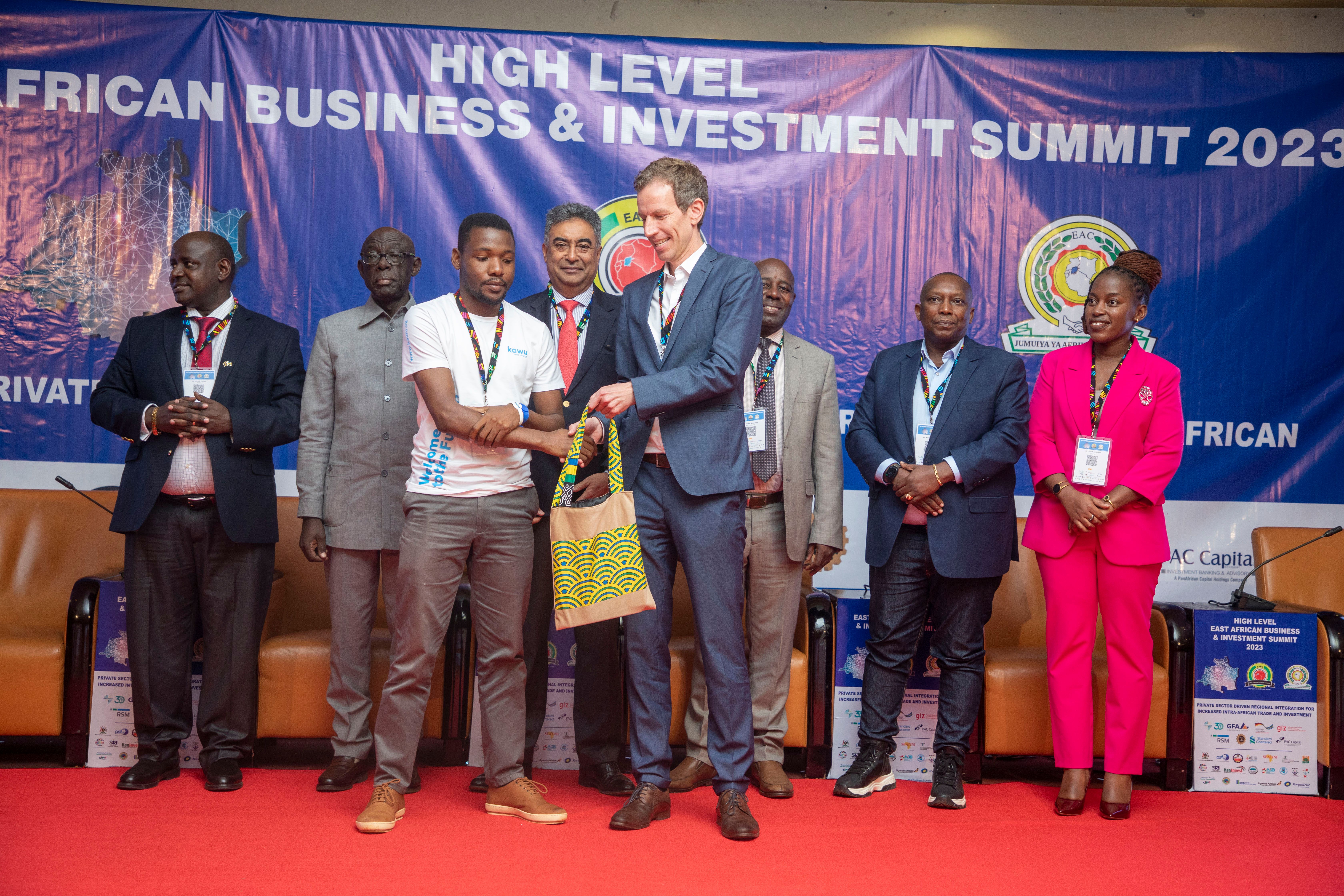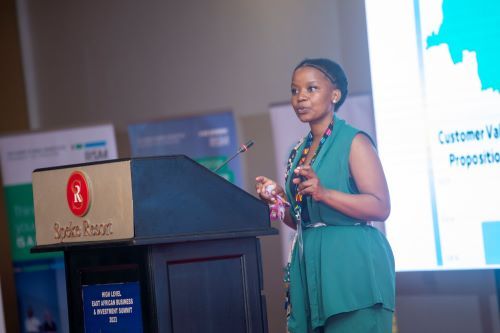From 31 August to 1 September, the East African Business Council (EABC) organised an East African Business and Investment Summit, themed "Private Sector-Driven Regional Integration for Increased Intra-African Trade, Investment & Economic Growth", in Entebbe, Uganda. The objective of the summit was to discuss global economic trends, position the EAC bloc as the best investment destination in Africa, and chart out future policy reforms. Additionally, the summit showcased opportunities, presented viable projects and facilitated business-to-business engagements, and partnerships for regional, continental and global investors. As part of its support and engagement at the summit, EAC-GIZ in collaboration with EABC, supported and facilitated various sessions in different thematic areas.
Science, Technology and Innovation for Industrial, Trade and Investment Development in the EAC
To demonstrate the importance of linkages between academia and industry in the adoption and commercialisation of innovations, the Digital Skills for an Innovative East African Industry (dSkills@EA) project facilitated the participation of twelve young innovators from the Centre of Excellence for ICT in East Africa (CENIT@EA) and other regional hubs. Out of the twelve innovators, seven earned the opportunity to pitch their innovative business ideas to an audience of industry leaders, public sector officials and government officials from the region.
The pitching session not only provided the innovators with mentorship support in areas of market strategy and pricing models, linkages to business networks and offers for capacity building programmes, but also immediate commitments of support by industry captains to develop their business ideas to a scalable level.
For Hellen Munyasa, this was a life-changing experience and “the best day of her life,” as her project that converts post-consumer plastic bottles into recycled sewing threads received immediate funding commitments from Mr. Jas Bedi, the Chairman of the African Cotton & Textile Industries Federation and “Takataka ni mali” initiatives, among others. Her project not only addressed environmental concerns but also presented an economic solution by creating potential jobs. This is a key example of GIZ’s commitment to enhancing the employability of young people from the EAC Partner States by supporting training in digital skills and the commercialisation of innovations.
Several stakeholders came forward to share their perspectives and feedback on the innovator’s projects presented at the summit. Mr. Jean Baptiste Havugimana, the Director of Productive Sectors for the EAC, stressed the urgency of transitioning these innovative ideas into viable and long-lasting business solutions for the region.
Climate Change and Agriculture
EAC and GIZ, via the Support to East African Integration (SEAMPEC II) programme and the GFA Consulting Group, supported a panel session on Climate Change and Agriculture. The session was facilitated by Eng. Jennifer Gache, Regional Expert Agro Processing, GFA. During the session, Eng. Jan Willem van Es, Managing Director of Amelia Agro Africa Ltd., and Hon. Sam Nkenga, Minister of Agriculture, Kingdom of Busoga, delivered insightful presentations on the intersection of climate change and agriculture.
The session highlighted the growing challenges of food security amid climate change and the critical role climate change plays in reshaping the agricultural landscape within the EAC region. The panelists discussed the importance of growing organic fruits, vegetables, and herbs by avoiding synthetic fertilizers and pesticides, focusing on soil health and implementing agroforestry and regenerative principles. The need to support farmers on methods to reduce the usage of synthetic fertilizers and pesticides for the regions’ consumption and for export was also emphasized. This is critical in light of the European Union’s (EU) target to undertake a 50% cut in the use and risks of synthetic pesticides and a 20% cut in fertilizer use by 2030 for the products the region exports there. Additionally, sensitizing small-scale farmers to climate change impacts and providing them with data on seasonal climate forecasts can help them develop climate change-positive strategies for farming decisions.
Digital Economy
The joint EAC-GIZ dSkills@EA project organised a digital economy panel themed “Unlocking Business Opportunities in the EAC and AfCFTA through Digital Skills”. The session was moderated by Ms Linda Kwamboka. The discussion brought to the fore several recommendations aimed at advancing the digital transformation agenda in the region.
Speaking at the session, Prof. Meshack Obonyo of the Inter-University Council of East Africa (IUCEA) highlighted the crucial role of collaboration between academia and industry. He emphasized the need to ensure that universities graduate students who are fit for purpose for the job market or self-employment. “Partner states and our governments should foster collaboration with educational institutions to enhance the knowledge of young people and ensure they are relevant and well prepared for the digital era”, he noted. The panelists emphasized the significance of collaborative efforts between the public and private sectors to fully harness the full potential of the digital economy by leveraging the strengths of both sectors.
Find more information on SEAMPEC II here.
Find more information on dSkills@EA here.

